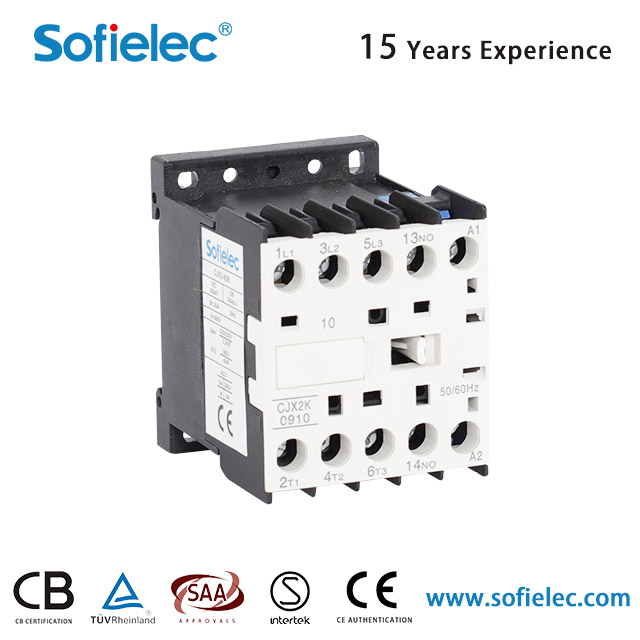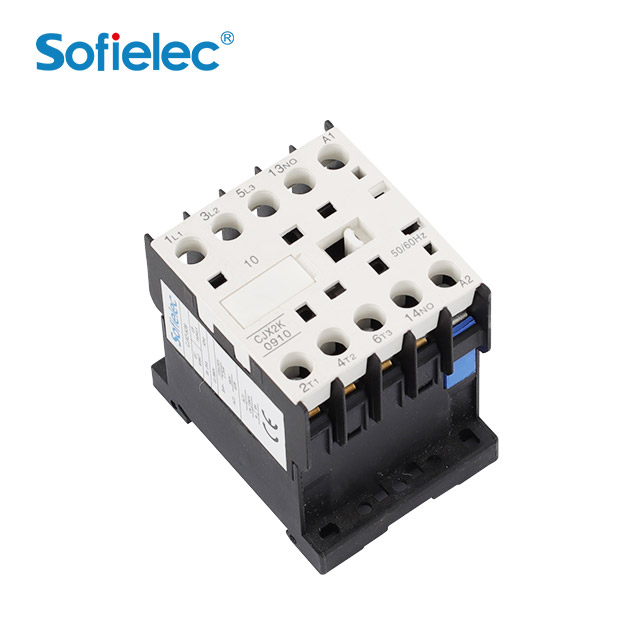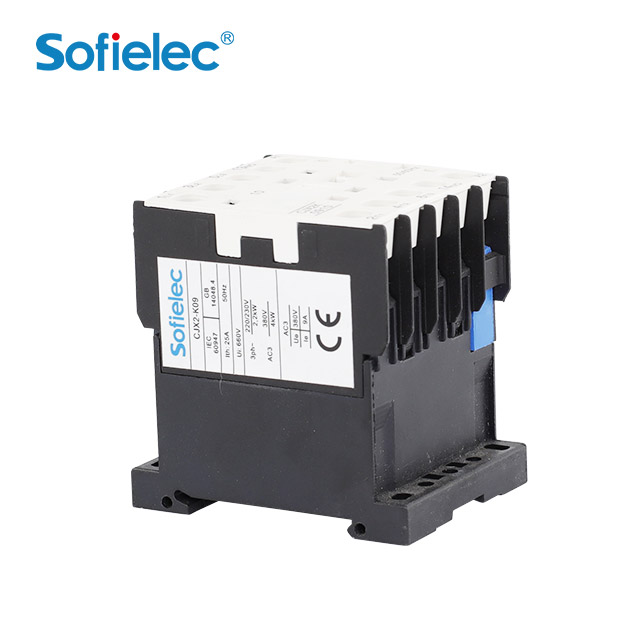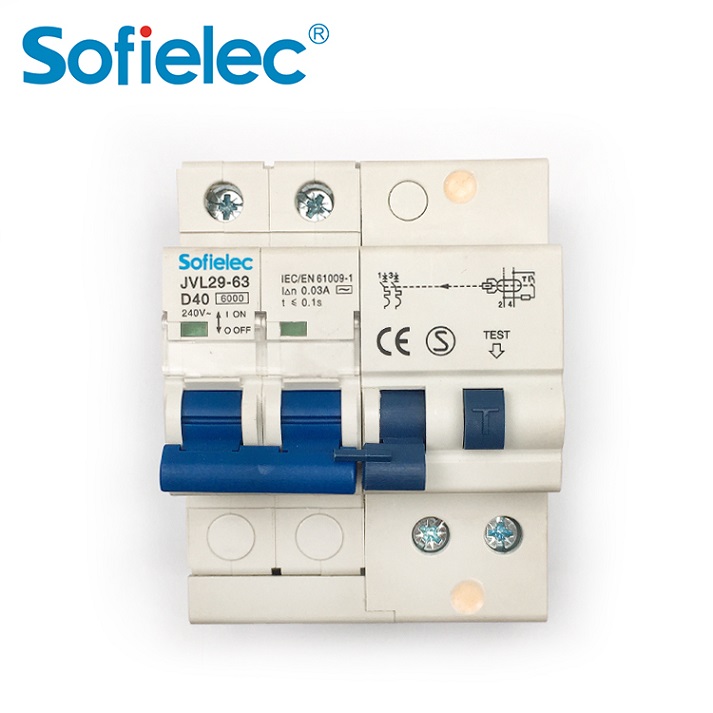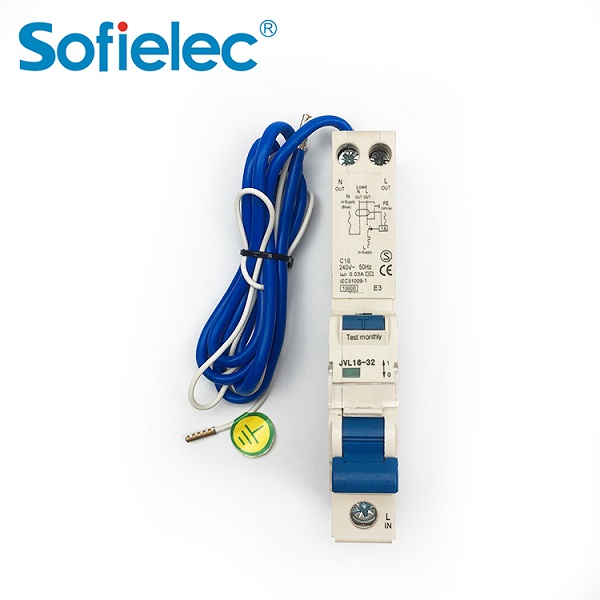Technical Data
Contactor is an automatic electromagnetic switch suitable for frequent connection or disconnection of DC and AC main circuits and large capacity electrical circuit control over long distances. The main control object of AC/DC contactors is the electric motor, which can complete automatic connection, stop, reverse rotation, forward rotation, and other functions to control the motor. It can also be used for controlling other electrical equipment.
Applications
CJX2 series AC contactor(hereinafter to be referred as contactor), it mainly applies to the circuitof AC 50Hz/60Hz, and rated insulation voltage 660V. Combined with proper thermal overloadrelay can protect load circuit. Contactor can fre-quently start and control AC electromotor.This product conforms to GB 14048 4. IEC60947- 4-1 standard.
Structural features
Has advanced structure, small size, light weight, low power consumption, high life, safety and reliability, technical performance characteristics.. can be used to install modular mounting auxiliary contact group, attachments, etc. combined into a variety of thermal relay derived products.a , In addition to the contactor mounting screws, but also with a standard 35mm rail mounting.. contactor core and the contact with the mounting surface parallel to the direction of motion.
NORMAL RUNNING AND INSTALLATION CONDITIONS
1、Amdient air temperature:-5℃~+40℃, the average value should not exceed+35℃ within 24 hours.
2、Elevation: At most 2000m.
3、Atmospheric conditions:When the temperature at 40, the relative humidity of atomsphere should de at the most 50%.
4、When at relatively low thmperatures, it could have higher relative humidity. Monthly maximum relative humidity could be not more than 90%. Special measures should be taken due to occurrence of dews.
5、Class of pollution:Class 3
6、mstallation category.Ⅲ
7、Installation conditions: Degree of inclination between fitting surface and verical surface should not exceed ±5°
8、Impact shock: Product should be installed and used in the place where often shakes and impacts.
Main technical parameter
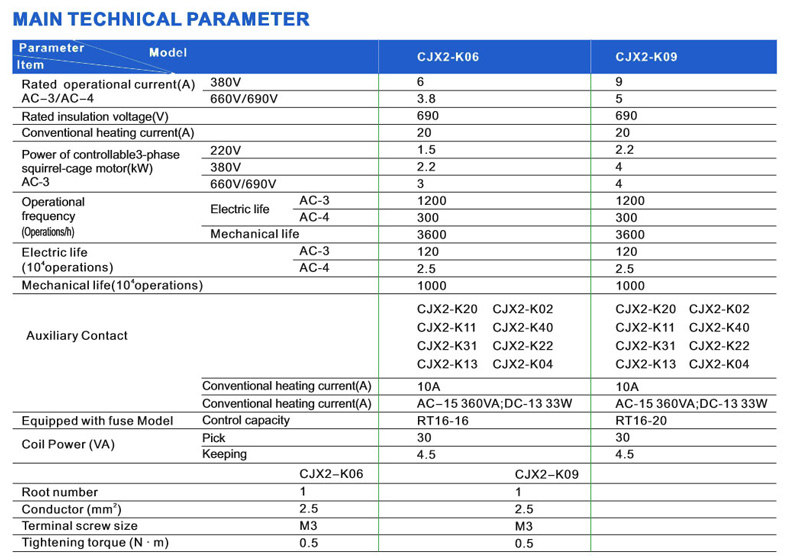
> What are the four types of timer switches?
A time switch, often simply referred to as a timer, is a device that automatically controls when an electrical circuit is turned on or off. It's like a programmable ...
> Can You Replace a 10 Amp Breaker with a 20 Amp Breaker?
Replacing a 10-amp circuit breaker with a 20-amp one without a thorough professional evaluation is extremely dangerous and poses a significant fire hazard. Let's ana...
> What Makes a Circuit Breaker Essential for Home Electrical Safety?
Home electrical safety ranks high on every homeowner’s priority list, yet many overlook the quiet workhorse that prevents crises before they start. This device acts ...
> What Scenarios Require the Use of a Residual Current Circuit Breaker?
Electrical safety is a top priority in daily life and work, yet many people are unsure when to use a device that guards against electric shock. This article explains...

